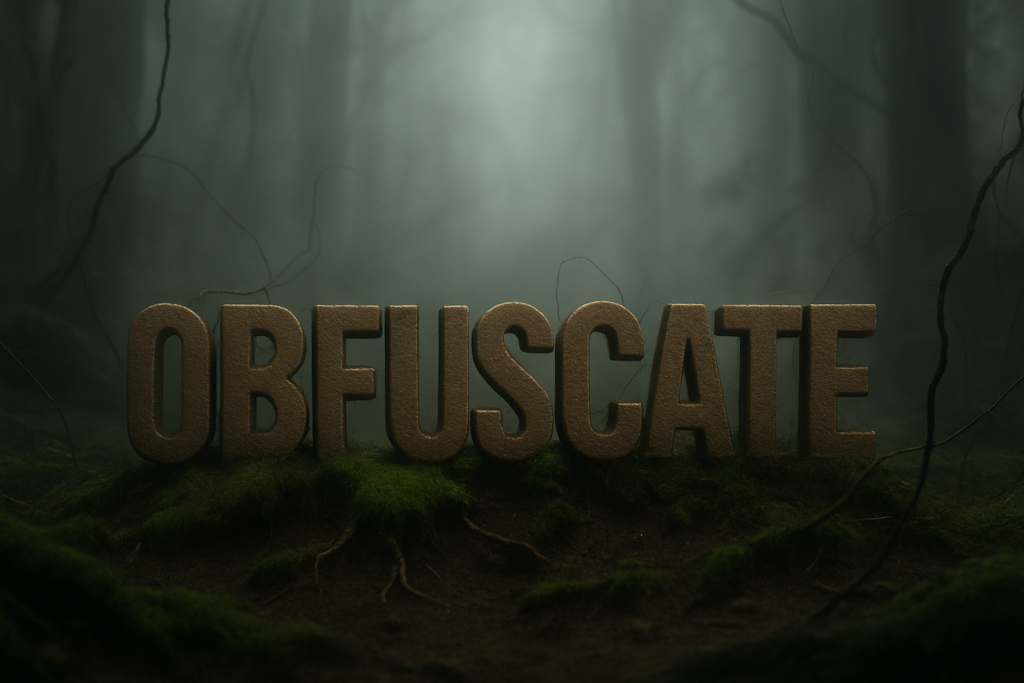Harangue

Today's Word Harangue huh-RANG Definition (noun/verb) A long, forceful, and aggressive speech. / To lecture someone in an intense, critical, or ranting manner. Example The coach launched into a fiery harangue, chastising the team for their lack of effort. Word Origin From Middle French harangue meaning “public address,” rooted in assembly or gathering spaces where long speeches were delivered. Fun Fact Historically, a harangue wasn’t always negative—it simply meant a formal, extended address. But over time, the word absorbed the tone of speeches that were more fiery than inspiring. Today, being harangued feels like being verbally cornered. Politicians, coaches, and impassioned activists are all famous for their harangues—whether motivating or maddening.
Susurrous

Today's Word Susurrous soo-SUR-us Definition (adjective) Characterized by soft, whispering, or rustling sounds. Example The susurrous murmur of wind through the leaves made the forest feel alive yet utterly peaceful. Word Origin From Latin susurrare — “to whisper.” Fun Fact Writers use susurrous to evoke atmosphere—especially scenes filled with gentle natural sound. In poetry, it often describes leaves, grasses, or water moving softly enough to feel intimate, as though nature is whispering secrets. The word is onomatopoetic, meaning its sound imitates its meaning: the repeated “s” mimics the very hush it describes.
Vituperate

Today's Word Vituperate vye-TOO-puh-rayt Definition (verb) To criticize or speak to someone in a harsh, abusive, or scolding manner. Example Frustrated by the delays, the coach began to vituperate the referees with escalating intensity. Word Origin From Latin vituperare, meaning “to blame” or “to censure.” Fun Fact In older literature, vituperation often appeared in fiery debates, political pamphlets, and courtroom exchanges—anywhere language could become a battlefield. The word implies more than mild criticism; it carries the sting of verbal attack, emotional heat, and even theatrical flair. Shakespeare’s insults are famous partly because they dance right on the edge of vituperation, turning fury into art.
Abjure

Today's Word Abjure ab-JOOR Definition (verb) To solemnly renounce, reject, or give up a belief, claim, or course of action. Example Under growing pressure, the senator publicly abjured her earlier remarks. Word Origin From Latin abjurare — “to deny under oath.” Fun Fact Historically, abjure was a legal term: people might “abjure the realm,” formally swearing to leave a country forever. Today, it appears more often in personal or ideological contexts—public figures abjure statements, celebrities abjure scandals, and authors abjure earlier opinions. The word carries a sense of formality and finality—this isn’t just changing your mind; it’s disowning a stance with clarity and purpose.
Philocalist

Today's Word Philocalist fih-LOH-kuh-list Definition (noun) A person who loves beauty—especially in art, nature, or everyday life. Example As a true philocalist, he collected small moments of beauty wherever he went, from sunlit windows to wildflowers growing through cracks in the sidewalk. Word Origin From Greek philo- (“loving”) + kallos (“beauty”). Fun Fact While the word isn’t widely used in everyday conversation, philocalist appears often in artistic and philosophical circles. The early Christians even had a text called Philocalia, meaning “love of the beautiful,” emphasizing spiritual and aesthetic appreciation. Modern philocalists often express their love of beauty through photography, journaling, or simply noticing what others overlook—tiny details that bring delight, wonder, or calm.
Multifarious

Today's Word Multifarious muhl-tuh-FAIR-ee-us Definition (adjective) Having many varied parts, aspects, or forms. Example The festival featured a multifarious mix of music, art, and food from all over the world. Word Origin From Latin multifarius, meaning “in many places” or “of many kinds,” from multus (“many”). Fun Fact Writers often use multifarious to describe anything bursting with variety—city streets filled with different cultures, ecosystems teeming with species, or personalities with countless layers. The word has a grand, almost kaleidoscopic quality to it, hinting at complexity that’s both overwhelming and beautiful. It’s a favorite in fields like biology and art criticism where diversity isn’t just present—it’s essential.
Gregarious

Today's Word Gregarious gri-GAIR-ee-us Definition (adjective) Fond of company; sociable. Example Always gregarious, Mia effortlessly gathered people together wherever she went. Word Origin From Latin gregarius, meaning “belonging to a flock,” from grex — “herd” or “group.” Fun Fact In biology, animals described as gregarious naturally seek out groups—think flocking birds, schooling fish, or grazing herds. Humans show similar patterns: social behavior often strengthens memory, resilience, and mood. The word paints a picture of someone who thrives when surrounded by others, moving through life the way birds lift together on a shared current.
Obfuscate

Today's Word Obfuscate OB-fuh-skayt Definition (verb) To make something unclear, confusing, or difficult to understand. Example The report’s dense jargon seemed designed to obfuscate the real issues rather than address them. Word Origin From Latin obfuscare, meaning “to darken” or “to obscure.” Fun Fact In rhetoric and politics, obfuscation is practically an art form. Speakers may bury simple ideas beneath complex language or overwhelming detail to steer attention away from uncomfortable truths. Psychologists note that obfuscation often taps into cognitive overload—when your brain is juggling too much information, clarity slips away. The word perfectly captures that foggy moment when meaning hides behind shadows.
Carouse

Today's Word Carouse kuh-ROWZ Definition (verb) To drink and celebrate loudly or exuberantly, often in a rowdy group. Example After the victory, the whole team caroused through the streets until dawn. Word Origin From German garaus machen, meaning “to drink up” or “finish completely,” later evolving into the idea of boisterous revelry. Fun Fact In the 1500s, carousing referred to a specific drinking toast — essentially “bottoms up!” As the custom spread, the word broadened to mean any night of energetic, unrestrained festivity. Writers often use it to capture scenes of joyful chaos: overflowing taverns, festival crowds, or spirited celebrations where stories (and regrets) are made.
Enmity

Today's Word Enmity EN-muh-tee Definition (noun) Deep-seated hatred or hostility between people or groups. Example Years of competition had grown into open enmity, making cooperation nearly impossible. Word Origin From Latin inimīcitia, meaning “hostility,” related to inimīcus (“enemy”). Fun Fact In literature, enmity often signals a conflict that runs deeper than simple disagreement—it’s the simmering force behind famous rivalries like Montagues vs. Capulets or Holmes vs. Moriarty. Psychologists note that prolonged enmity can reshape group identity: people begin defining themselves by who they oppose. The word captures not just anger, but the enduring emotional landscape that turns opposition into something personal and lasting.
